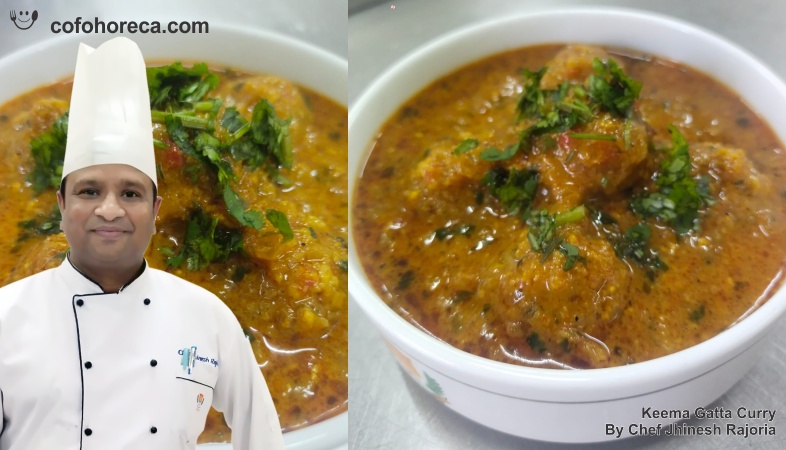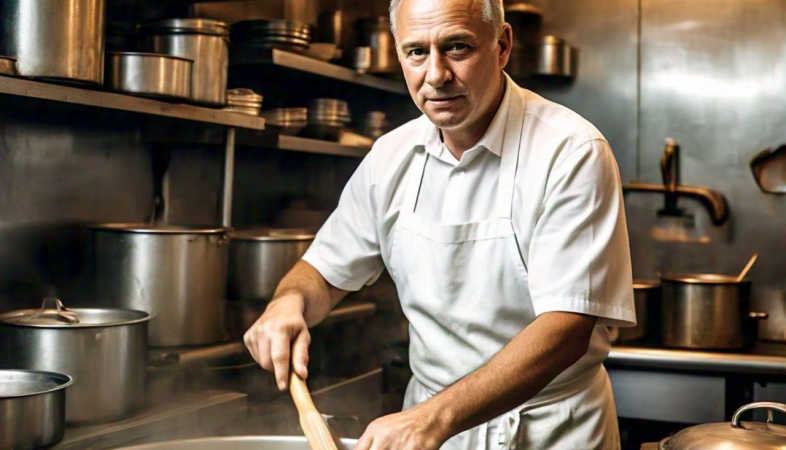How Kitchen Stewards Contribute to Food Safety and Quality
Maintaining cleanliness and hygiene is a primary responsibility of kitchen stewards.
Kitchen stewards play an indispensable role in maintaining
food safety and quality in any foodservice establishment. Though their work is
often behind the scenes, their contributions are fundamental to ensuring that
the food served to guests is safe, clean, and of the highest quality. Here are
key ways kitchen stewards contribute to food safety and quality.
Maintaining cleanliness and hygiene is a primary responsibility of kitchen stewards. They are tasked with ensuring that all kitchen surfaces, utensils, equipment, and storage areas are thoroughly cleaned and sanitized. This meticulous attention to cleanliness helps prevent cross-contamination and the spread of foodborne illnesses. By adhering to strict cleaning schedules and using appropriate sanitizing agents, kitchen stewards create a safe environment where food can be prepared without risk of contamination.
Proper handling and disposal of waste is another critical function of kitchen stewards. They manage waste disposal in a manner that prevents the buildup of garbage, which can attract pests and create unsanitary conditions. Regular removal of food waste, along with proper segregation and disposal of recyclable materials, helps maintain a clean and hygienic kitchen environment. Effective waste management practices are essential to prevent any potential contamination that could compromise food safety.
Kitchen stewards also play a crucial role in managing kitchenware and equipment. Ensuring that all dishes, pots, pans, and utensils are properly washed and sanitized is vital for preventing the transfer of harmful bacteria. Stewards inspect kitchenware for cleanliness and functionality, ensuring that everything used in food preparation and service meets stringent hygiene standards. Regular maintenance and proper handling of equipment also help in maintaining food quality by ensuring that tools and appliances function correctly.
Inventory management is another area where kitchen stewards contribute to food safety and quality. They are often responsible for receiving, inspecting, and storing food supplies. By checking delivery temperatures, inspecting for signs of spoilage, and ensuring proper storage conditions, stewards help maintain the freshness and safety of food items. Correct storage practices, such as keeping raw and cooked foods separate and storing items at the right temperatures, are crucial for preventing contamination and preserving food quality.
Temperature control is a key aspect of food safety, and kitchen stewards play a vital role in monitoring and maintaining proper temperatures. They ensure that refrigerators and freezers are functioning correctly and that food items are stored at safe temperatures. Regular temperature checks and prompt action if any equipment malfunctions help prevent the growth of harmful bacteria. Stewards also ensure that hot foods are kept at safe serving temperatures, reducing the risk of foodborne illnesses.
Kitchen stewards contribute to food safety by following and enforcing food safety protocols and standards. They are trained in food safety principles, including proper handwashing techniques, the use of personal protective equipment, and safe food handling practices. By adhering to these standards and ensuring that other kitchen staff do the same, stewards help create a culture of food safety within the establishment. Continuous training and education in food safety practices keep stewards updated on the latest guidelines and best practices.
Cross-training and teamwork are also integral to the role of kitchen stewards. They often assist with various tasks in the kitchen, providing support to chefs and other kitchen staff. This collaboration ensures that food is prepared and served safely and efficiently. Stewards who are knowledgeable about food safety can identify potential risks and take corrective actions promptly. Their proactive approach helps prevent issues before they arise, ensuring that food safety and quality are never compromised.
Kitchen stewards' attention to detail and dedication to their work are essential for maintaining high standards of food safety and quality. Their commitment to cleanliness, proper handling of kitchenware, effective waste management, and adherence to food safety protocols ensures that every aspect of the kitchen operation supports the goal of serving safe, high-quality food to guests.
Kitchen stewards are vital to the food safety and quality of any foodservice establishment. Through their efforts in maintaining cleanliness, managing waste, handling kitchenware, controlling temperatures, following safety protocols, and working as a cohesive team, they create a safe and hygienic environment for food preparation and service. Their behind-the-scenes work ensures that guests can enjoy their meals with confidence, knowing that the highest standards of food safety and quality are being upheld.
.png)




























